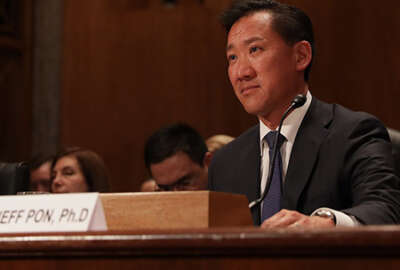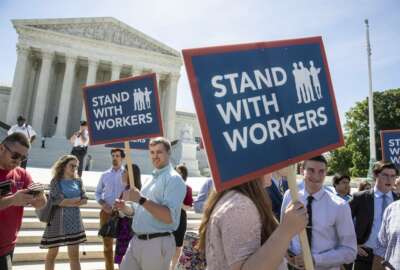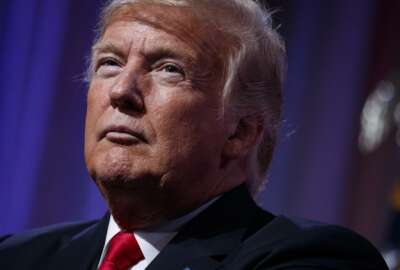
Trump appeals court decision to overturn key provisions of president’s EOs
Lawyers for the Trump administration say the U.S. Court of Appeals for the District of Columbia Circuit should review a federal judge's decision to invalidate the...
The Trump administration has officially appealed a federal district court’s recent decision that invalidated nine key provisions of the president’s executive orders on collective bargaining, official time and employee removals.
Attorneys representing President Donald Trump and Office of Personnel Management Director Jeff Pon filed their appeal with the U.S. Court of Appeals for the District of Columbia Circuit on Tuesday.
The appeal includes all prior orders and decisions that merge with the D.C. district court’s decision, which Judge Ketjani Brown Jackson issued on Aug. 24.
The appeal shouldn’t come as a major surprise, as OPM, in ordering agencies to “fully comply” with the federal judge’s decision, said it would work with the Justice Department to “evaluate next steps in this litigation.”
Federal unions said they saw the Aug. 24 decision as a major win, but they wouldn’t be surprised by an appeal from the administration.
Meanwhile, the appeal is sure to spark some confusion, as agencies begin to reverse any actions they took to comply with the president’s original executive orders, per OPM guidance.
Interestingly enough, the Trump administration, in its arguments before the D.C. district court, had made the case that the unions’ consolidate legal challenge of the president’s EOs belonged in the U.S. Court of Appeals anyway.
The U.S. District Court for D.C. lacked jurisdiction in this case, Trump’s lawyers said.
More than a dozen federal unions, led by the American Federation of Government Employees (AFGE), National Treasury Employees Union (NTEU) and National Federation of Government Employees (NFFE), had separately sued the Trump administration over the president’s executive orders, which the administration released May 25, earlier this summer.
Together, they consolidated their lawsuits and sought summary judgment on four separate motions before the U.S. District Court for the District of Columbia.
In her opinion, Brown did not declare the executive orders themselves as violations of the law. The president did not overstep his executive authority or constitutional power by issuing these executive orders on federal labor-management relations, she said.
But, nine of the provisions outlined in the Trump’s three executive orders conflict with the original intention Congress had in drafting and passing the Civil Service Reform Act and Federal Labor-Management Relations Statute back in 1978.
The judge invalidated the following provisions in the president’s EOs:
- The imposition of a 25 percent cap on the use of official time,
- The prohibition against employees’ right to petition and communicate with Congress,
- The ban on the use of official time by union representatives to prepare and present grievances,
- The one-hour per bargaining unit employee formula to be applied to set an aggregate cap on the use of official time,
- The limitations placed on unions’ use of agency facilities, such as office space and computers,
- The exclusion of challenges to performance ratings and incentive pay from the scope of the negotiated grievance procedure,
- The limitation of performance improvement periods (PIPs) to 30 days, with agencies alone having the discretion to apply longer periods,
- The direction to agencies to press for the exclusion of removals from the scope of the negotiated grievance procedure, and,
- The prohibition against bargaining over the “permissive” subjects.
This story will be updated as more information becomes available.
Copyright © 2025 Federal News Network. All rights reserved. This website is not intended for users located within the European Economic Area.
Nicole Ogrysko is a reporter for Federal News Network focusing on the federal workforce and federal pay and benefits.
Follow @nogryskoWFED





